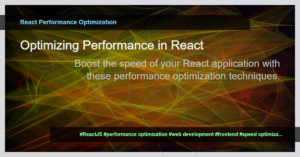In this article, we will explore some commonly asked SQL Server interview questions along with detailed answers. Whether you are preparing for a job interview or looking to brush up on your SQL Server knowledge, these questions and answers will help you feel confident and well-prepared. Let’s dive in!
- 10 Agile Management Interview Questions and Answers
- 10 TypeScript Interview Questions and Answers
- Important AWS SDK S3 Bucket Interview Questions and Answers
- Interview Cheatsheet for PHP Developers
- Dart Interview Cheatsheet
- Python Interview Cheatsheet
- JavaScript Interview Cheatsheet
- Java Interview Cheatsheet
- Chakra UI Interview Questions and Answers
- 10 Agile Management Interview Questions and Answers
- 10 TypeScript Interview Questions and Answers
- Important AWS SDK S3 Bucket Interview Questions and Answers
- Interview Cheatsheet for PHP Developers
- Dart Interview Cheatsheet
- Python Interview Cheatsheet
- JavaScript Interview Cheatsheet
- Java Interview Cheatsheet
- Chakra UI Interview Questions and Answers
- What is SQL Server and what are its key features?
SQL Server is a relational database management system developed by Microsoft. It is used to store and retrieve data as requested by other software applications. Some key features of SQL Server include support for T-SQL (Transact-SQL), which is a powerful extension of SQL, built-in data replication and mirroring for high availability, and integration with other Microsoft products such as Visual Studio and Excel.
- What is T-SQL and what are some of its important features?
T-SQL, or Transact-SQL, is the SQL dialect used by SQL Server. It includes enhancements to the SQL standard and provides additional functionality for querying and manipulating data. Some important features of T-SQL include support for stored procedures, triggers, user-defined functions, and error handling through try-catch blocks.
- How do you optimize the performance of SQL Server queries?
There are several ways to optimize the performance of SQL Server queries. One approach is to ensure that appropriate indexes are in place on the tables being queried. This can help the SQL Server query optimizer choose the most efficient execution plan. Other techniques include using appropriate join types, avoiding unnecessary data conversions, and minimizing the use of scalar functions in the query. Additionally, regularly monitoring and tuning queries using tools like SQL Server Profiler can help identify and address performance bottlenecks.
- Boosting Performance with .NET 7 Runtime
- How does Ignition and TurboFan enhance JavaScript performance?
- Demystifying the V8 JavaScript Engine
- Understanding Space Complexity in Dart Programming
- Improving JavaScript Performance with performance.now()
- Understanding Space Complexity in GoLang
- Improving JavaScript Performance with performance.now()
- Caching in EmberJS for Improved Performance
- Caching in Next.js – Improving Performance with Cached Values or Functions
- Caching in Angular: Improving Performance with Cache Mechanisms
- What is data modeling, and why is it important in SQL Server?
Data modeling is the process of defining and designing a database structure that accurately represents the organization’s data requirements. It involves creating entity-relationship diagrams (ERDs) and defining the relationships between different entities. Data modeling is important in SQL Server because it helps ensure data integrity, provides a blueprint for database development, and enables efficient querying and reporting.
- What is database normalization, and why is it important?
Database normalization is the process of organizing data in a database to reduce redundancy and improve data integrity. It involves dividing large tables into smaller and more manageable tables and establishing relationships between them. Database normalization helps eliminate data anomalies and inconsistencies, improves data integrity, and reduces the amount of storage space required.
- How do you create and manage indexes in SQL Server?
Indexes in SQL Server are used to speed up the querying process by allowing for faster data retrieval. To create an index, you can use the CREATE INDEX statement with the appropriate options, specifying the table and columns you want to index. Indexes can be managed by monitoring their usage and performance, regularly rebuilding or reorganizing them to maintain optimal performance, and periodically updating statistics.
- What are some best practices for SQL Server backup and restore?
SQL Server backup and restore is essential for protecting data in case of hardware failures, user errors, or other disasters. Some best practices for SQL Server backup and restore include regularly scheduling full backups, implementing differential and transaction log backups to reduce recovery time objectives, storing backups offsite, and regularly testing backups by performing restore tests.
Conclusion:
These SQL Server interview questions and answers cover a range of topics, from basic SQL Server concepts to more advanced performance optimization techniques. By familiarizing yourself with these questions and their answers, you will be well-prepared to tackle SQL Server interviews with confidence. Remember to practice these concepts and experiment with SQL Server to solidify your understanding. Best of luck in your SQL Server interview!





